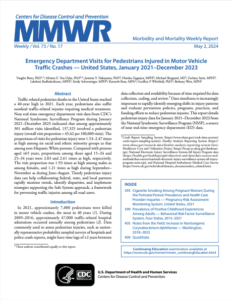This report marks an important moment in the growing understanding of childhood experiences. This report signals that PCEs have become important public health data that can be collected and used to improve population health. Robert Sege, MD, PhD, FAAP
Positive childhood experiences are common but not equally available to everyone
Positive childhood experiences (PCEs) promote optimal health and mitigate the effects of adverse childhood experiences, but PCE prevalence in the United States is not well-known. Prevalence of Positive Childhood Experiences Among Adults — Behavioral Risk Factor Surveillance System, Four States, 2015–2021, a study conducted by HOPE Directors Robert Sege, MD, PhD and Dina Burstein, MD, PhD and colleagues, describes the prevalence of individual and cumulative PCEs among adults residing in four states: Kansas, Montana, South Carolina, and Wisconsin.
Using the states’ Behavioral Risk Factor Surveillance System data, the investigators analyzed PCE survey responses from over 24,000 adults who represent a total population of 15 million people. They found that more than half of adults reported a high level of PCEs in their BRFSS responses, and less than 2 of 10 adults reported a low PCE score. However, PCE scores differed when accounting for demographic and socioeconomic factors. For example, only 38% of gay or lesbian adults and only 27% of bisexual adults reported high PCE scores versus 55% of heterosexual adults who reported high PCE scores. This new multi-state BRFSS study opens the door for further research on PCEs.
Publication Information
Authors
Robert Sege, MD, PhD, FAAP*, Elizabeth A. Swedo, MD, Dina Burstein, MD, MPH*, Maria V. Aslam, PhD, Jennifer Jones, MSW, Christina Bethell, PhD, Phyllis Holditch Niolon
*Affiliated with the HOPE National Resource Center
Journal
Morbidity and Mortality Weekly Report
Publication Date
May 2, 2024
Keywords
positive childhood experiences, PCEs, adult health, relational health, adverse childhood experiences, ACEs, behavioral risk factor surveillance system, BRFS, BRFSS, health equity
Citation
Sege R, Swedo EA, Burstein D, Aslam MV, Jones J, Bethell C, Niolon PH. Prevalence of Positive Childhood Experiences Among Adults — Behavioral Risk Factor Surveillance System, Four States, 2015–2021. Morb Mortal Wkly Rep. 2024 May 2. 73(17): 399-404. DOI: 10.15585/mmwr.mm7317a3





